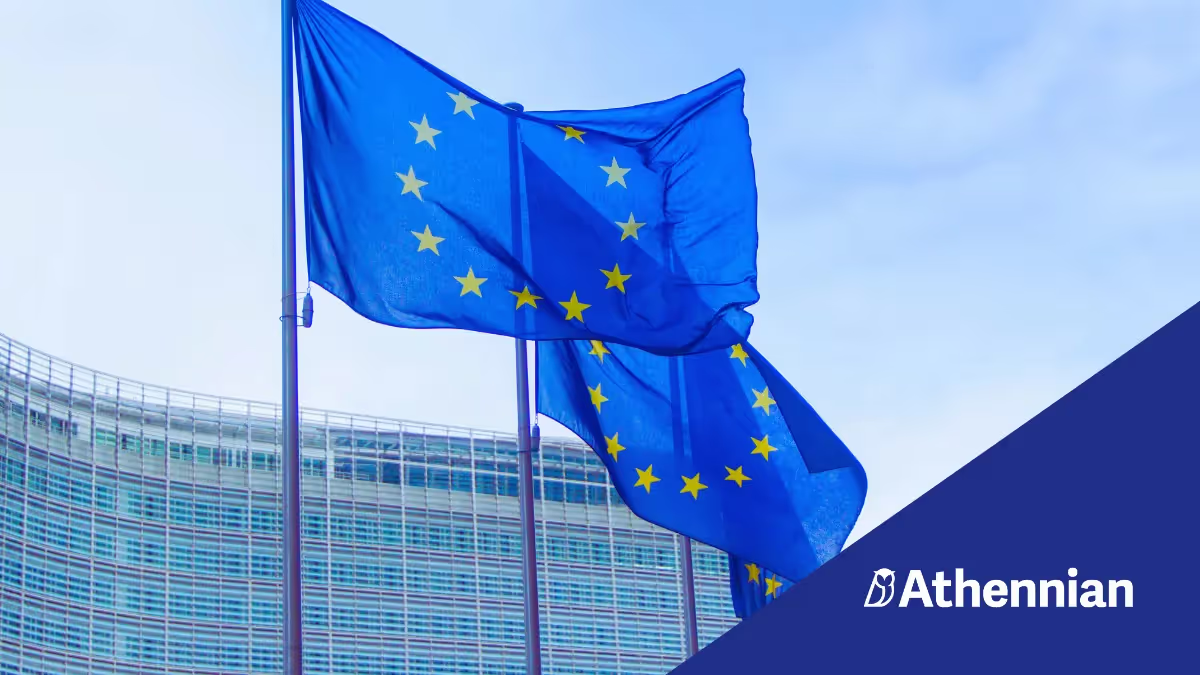The European Union has been consistently pushing its anti-money laundering agenda for member states, aiming to protect its financial system from illicit activities.
In 2024, the European Anti-Money Laundering Authority (AMLA) introduced updated beneficial ownership requirements to address gaps in earlier regulations and improve disclosure accuracy.
This article examines the EU’s anti-money laundering initiatives, highlights challenges for global organizations, and offers practical strategies for implementing transparency rules for UBO compliance in 2025.
Why Beneficial Ownership Rules Are Tightening Across the EU
Earlier, the Anti-Money Laundering Directive IV and Directive V introduced beneficial ownership requirements aligned with FATF recommendations.
The latest AML Regulation, which was published on July 19, 2024, raises the bar for EU transparency expectations further, clarifying and expanding the beneficial ownership requirements.
Among the changes in the EU transparency rules, the EU's AML Package introduces the following modifications:
- Clarified Beneficial Ownership Threshold: The AML Regulation adjusted the original threshold definition from "more than 25%" to "25% or more," cleared the ambiguity in previous rules, and introduced a lower threshold (15%) for higher-risk sectors.
- Clarified Requirements for Assessing UBO Criteria: The new rule specifies that control over a corporate entity is to be identified independently of, or in parallel with, ownership interests, refuting the cascade principle applied in previous regulations.
- Definition of Beneficial Owners for Complex Structures: In the case of multi-layered structures, the new EU transparency rules introduce a clear calculation process, multiplying the voting rights in intermediary entities.
- Requirements for State-Run UBO Registers: The AML Regulation sets new requirements for the accessibility and quality of state UBO registers.
- Allowing Registration of Management Instead of UBOs as an Exception: In its new disclosure requirements, the EU is explicit that registering senior executives instead of actual UBOs is allowed only as an exception.
- Setting Requirements for Data Verification: The regulator expanded the authorities of controlling bodies to verify the accuracy of UBO disclosures, which include on-site investigations, checks and suspension of registration.

Challenges Facing Organizations in UBO Compliance
As the new AML Regulation obliges EU member-states to ensure implementation between 2027 and 2029, global organizations with EU entities have time to prepare for more stringent UBO disclosures.
Meanwhile, their compliance teams have to implement existing beneficial ownership requirements set by national regulators according to earlier Directive IV and Directive V for UBO compliance.
Although the new EU rules raise the bar for beneficial ownership disclosure, the existing regulatory framework still presents significant challenges for global organizations.
Businesses with registered EU entities are already managing large volumes of data to be filed to national regulators and face risks of non-compliance, including steep penalties and reputational losses.
Strategies to Stay Ahead of UBO Requirements
Ensuring the accuracy and timeliness of UBO disclosures for all legal entities remains a challenge for businesses operating across multiple EU jurisdictions.
Large volumes of data for disclosures and lack of full standardization across EU member states call for implementing best compliance practices and a holistic approach to UBO reporting.
Establishing a Single Source of Truth for Beneficial Owners
When legal teams work in silos and operate a disintegrated tech stack, their compliance work becomes compromised.
Instead, organizations that implement a single source of truth for all their entities, accessible by all their teams from any device, can gain control over their data and improve the quality of their compliance work, including UBO disclosures.
Update Data on Beneficial Owners in Real-Time
When organizations manage multiple subsidiaries in the absence of effective entity management processes, their compliance teams often struggle to keep their records updated, which leads to data decay and abandoned entities.
Implementing an effective entity management platform helps to update UBO data in real time, ensure timely disclosures and avoid penalties.
Automation of UBO Disclosures
As businesses expand their operations and add new subsidiaries, their ownership structures are in constant flux.
Managing multiple entities requires transitioning from manual processes to automated solutions for entity management and UBO disclosures, saving legal teams multiple hours and enabling them to do more with less within their departments.

How Athennian Can Help Your Organization Stay Compliant
When compliance teams work in Athennian, they can effectively automate their UBO compliance across jurisdictions, including the EU member states.
The Athennian entity management platform provides in-house counsels with comprehensive UBO compliance solutions, allowing teams to cut time for compliance work and ensure regulatory adherence.
Athennian offers an intuitive toolset aimed at streamlining entity management for global teams. Built around compliance processes and corporate governance trends as they are implemented today, the Athennian entity management platform empowers legal teams with modern technology, which includes:
- Centralized Database for all Legal Entities: Athennian entity management software provides organizations with a centralized cloud database for all their entities and beneficial owners, enabling real-time updates and pushing data into reports.
- Customizable Templates for UBO Reporting: Working in Athennian, compliance teams leverage customizable auto-populated templates for disclosures, which can be modified for each jurisdiction.
- Automated Reminders: By using automated reminders for compliance filings, legal teams can rest assured that all important deadlines are tracked and prioritized and ensure good standing with regulators across all their entities.
- AI Compliance Tools: Athennian further streamlines regulatory adherence by introducing AI compliance tools, which replace manual input, process, summarize and tag multiple documents simultaneously, and eliminate human error.
Staying Agile in an Era of Increasing Transparency
The tightening EU transparency requirements set new standards for beneficial ownership disclosures across member states, which should be accounted for in your 2025 compliance roadmap.
While the new AML Package harmonizes jurisdictional requirements across the EU member states, it raises the bar for UBO disclosures, filling in the gaps and clarifying uncertainties in previous regulations.
Among legal professionals and compliance teams, it is common knowledge that streamlining UBO compliance isn't just efficient—it's essential for staying ahead of the regulatory curve. Explore how Athennian's tools can simplify UBO compliance for your global teams and see it in action by booking a free demo today.




.svg)


.avif)
.avif)




-p-500.webp)
-p-500.webp)
-p-500.webp)
.webp)
